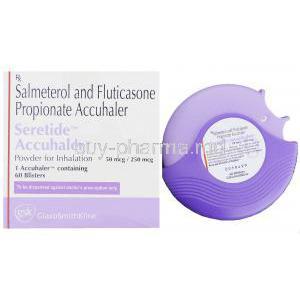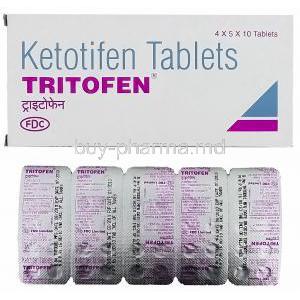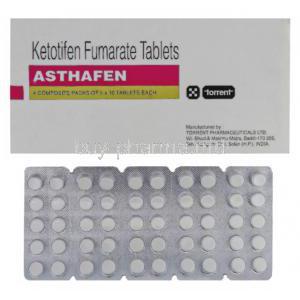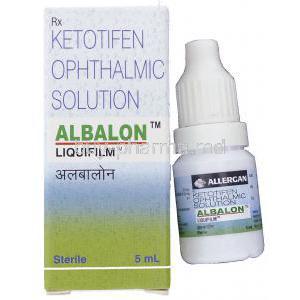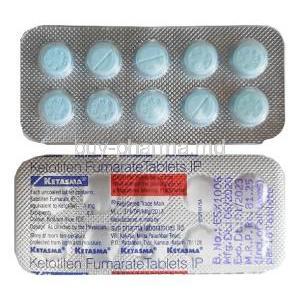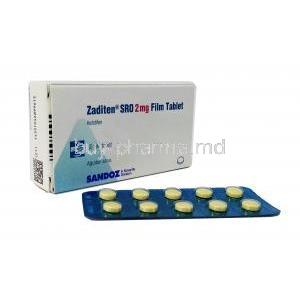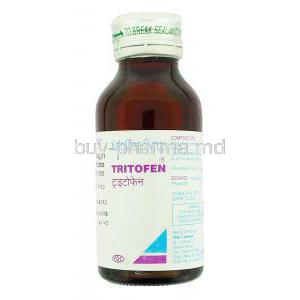Zaditen
- I. Introduction to Zaditen
- II. Composition of Zaditen
- III. How Zaditen Works
- IV. Uses of Zaditen
- V. Off-label Uses of Zaditen
- VI. Dosage and Administration of Zaditen
- VII. Common Side Effects of Zaditen
- VIII. Important Precautions with Zaditen
- IX. Administration to Special Populations
- X. Overdose and Emergency Management
- XI. Storage and Handling Precautions for Zaditen
I. Introduction to Zaditen
Zaditen is a medication in the world of antihistamines, providing relief to those dealing with asthma and various allergies. Its effectiveness in reducing allergic reactions makes it an essential part of current medical treatments. The development and approval of Zaditen can be traced back to research efforts focused on finding a powerful solution for asthma and allergies. From its inception to receiving approval, Zaditen's journey showcases a story of scientific dedication and innovative therapies leading to its endorsement by health authorities worldwide. In medicine, Zaditen plays a crucial role in managing allergic conditions, symbolizing the harmony between advancements in pharmacology and improved patient well-being.
II. Composition of Zaditen
The effectiveness of Zaditen primarily relies on its component, which works to reduce histamine triggered allergic reactions ultimately alleviating symptoms related to allergies and asthma.
In addition to the ingredients, the excipients in Zaditen play a crucial role in enhancing the bioavailability of the drug and maintaining its stability, thus improving its therapeutic effectiveness.
Zaditen comes in forms such as oral tablets and eye drops designed to meet a range of therapeutic requirements for different allergic conditions.
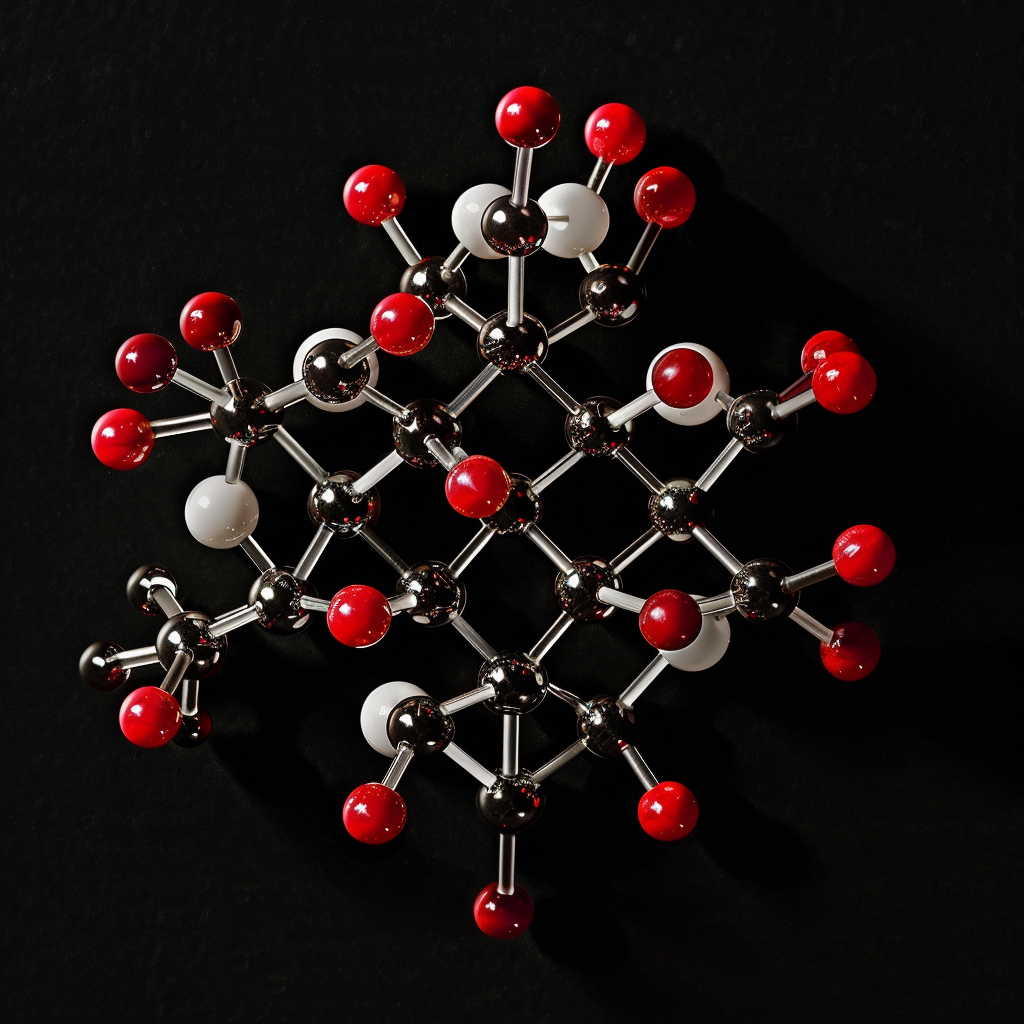
III. How Zaditen Works
IV. Uses of Zaditen
Zaditen, also known as ketotifen, is an antihistamine medication and a mast cell stabilizer. It is used to treat various allergic conditions, including:
- Asthma: Zaditen helps prevent asthma attacks and manage symptoms.
- Conjunctivitis: The ophthalmic form of Zaditen (eye drops or drug-eluting contact lenses) relieves eye itchiness and irritation associated with seasonal allergies.
- Urticaria (Hives): Zaditen effectively relieves discomfort caused by urticaria, improving the quality of life for those affected.
V. Off-label Uses of Zaditen
Investigating alternative uses in practice. Apart from its approved uses, Zaditen (ketotifen) has shown efficacy in managing systemic mast cell diseases such as mastocytosis and mast cell activation syndrome (MCAS), which involve abnormal accumulation or activation of mast cells throughout the body. It is also used for other allergic-type conditions like atopic dermatitis (eczema) and food allergies1.
VI. Dosage and Administration of Zaditen
Dosage recommendations for age groups. The prescribed doses of Zaditen are carefully tailored to meet the needs of different patient groups, taking into account their unique biological and response profiles to achieve the best treatment results. Whether taken by mouth or applied as eye drops, following administration guidelines is crucial for maximizing its therapeutic effectiveness. When it comes to populations, dosage adjustments are made with careful attention to maintain effectiveness without increasing the likelihood of unwanted side effects.

VII. Common Side Effects of Zaditen
Here is a list of side effects that are often experienced. Although most patients tolerate Zaditen well, some common side effects such as drowsiness, dry mouth, and headaches may occur, but they are usually temporary and can be managed effectively.
- Dealing with side effects at home. Many of the less severe side effects can be addressed at home with simple remedies to ensure you continue to take your medication as prescribed.
- When to seek advice. If more serious or persistent side effects arise it is important to promptly consult a healthcare professional for a review of your treatment plan.
VIII. Important Precautions with Zaditen
Interactions with medications and substances. When using Zaditen, it's important to be cautious about combining it with other substances. Mixing Zaditen with medications or substances can lead to various interactions ranging from minor to significant. Thus it's crucial to assess the concurrent use of different medications.
Contraindications: Who should not take Zaditen? Not everyone can benefit from Zaditen's effectiveness. Certain groups, identified by contraindications like severe allergic reactions to the active ingredient or any additives are recommended to explore alternative treatment options. This highlights the importance of tailoring treatments to needs.
Precautions for patients with existing conditions. Patients with existing health conditions require a thorough approach when using Zaditen. These conditions call for an examination of how Zaditen may affect them shaping a treatment plan that is both effective and safe.
IX. Administration to Special Populations
- To the elderly: Adjusting doses and considerations. Elderly individuals, with their changed physiology, often need dosing plans that differ from the usual. The changes in how drugs are processed and their effects due to aging require careful adjustments to dosing methods to ensure safety and effectiveness.
- To women and nursing mothers: Ensuring safety. During pregnancy and breastfeeding, when the body undergoes intricate changes, the administration of Zaditen is closely examined. Prioritizing the safety of both mother and baby leads to an approach based on limited evidence regarding its safety for these specific groups.
- To children: Tailored dosing and precautions are based on age. Children's bodies constantly develop, so an approach is required when administering Zaditen. Providing age dosing instructions and precautions demonstrates a commitment to protecting the health of this vulnerable group while maintaining a balance between therapeutic benefits and safety.

X. Overdose and Emergency Management
- Signs of taking much Zaditen. When someone has had too much Zaditen, there are clear signs that show it's time to act fast. Symptoms like feeling tired, confusion, and a fast heartbeat paint a picture of an overdose, calling for quick and clear action. Immediate steps and treatments if possible.
- If an overdose happens, the first priority is to provide support measures. While there isn't an antidote available treating the symptoms and offering support is crucial in preventing any negative effects of an overdose.
- Managing overdose symptoms in the term. Looking beyond the immediate situation, managing overdose symptoms, in the long run, involves careful monitoring and providing symptom-based care to help the body return to balance and reduce any potential complications.
XI. Storage and Handling Precautions for Zaditen
Storing Zaditen properly is crucial for maintaining its effectiveness. It should be kept away from light and moisture at a temperature level.
Following these storage guidelines helps to preserve the medication's potency. Taking precautions when handling Zaditen is essential to ensure its administration. This includes checking expiration dates and using techniques to prevent contamination and maintain its therapeutic benefits.
Properly disposing of unused Zaditen demonstrates a commitment to environmental responsibility and patient safety. Following recommended disposal methods reduces the risk of exposure and helps protect the environment.




